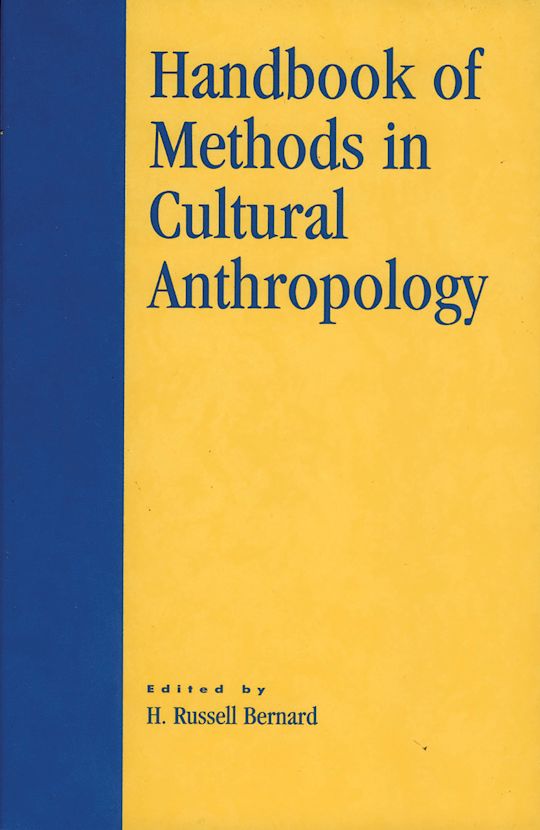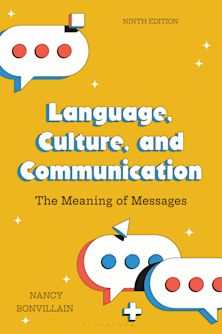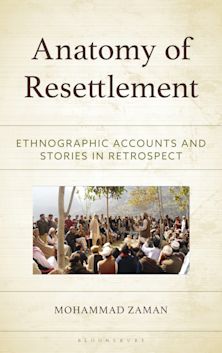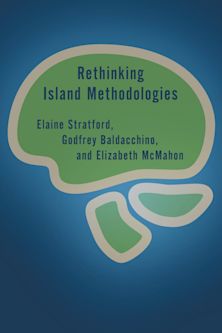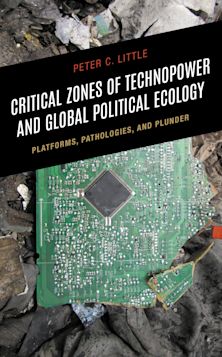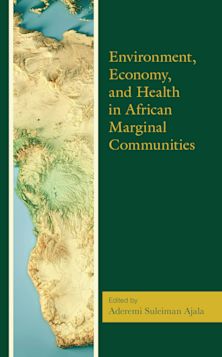- Home
- ACADEMIC
- Anthropology
- Anthropology - Other
- Handbook of Methods in Cultural Anthropology
For information on how we process your data, read our Privacy Policy
Thank you. We will email you when this book is available to order
Buy from Bloomsbury eTextBooks
You are now leaving the Bloomsbury Publishing website. Your eBook purchase will be with our partner https://www.vitalsource.com.
Your credit card statement will show this purchase originating from VitalSource Technologies. They will also provide any technical assistance you might require.
You must sign in to add this item to your wishlist. Please sign in or create an account
Description
The Handbook of Methods in Cultural Anthropology establishes a benchmark for synthesizing anthropological research practices over the past 100 years. Avoiding the divisive debates over science and humanism, the authors contributing to this important volume draw upon both traditions to define and describe anthropological fieldwork in practice. Authored by 27 of the leaders in the discipline, these chapters provide the reader with comprehensive, contemporary descriptions of the methods that anthropologists use, the logic behind them, and the complex problems that field research with humans entails. In addition to traditional participant observation and related strategies, the Handbook examines historical methods, surveys, linguistic methods, comparative research, social intervention, and visual anthropology as ways in which anthropologists seek to understand the world. Related questions of research strategies and designs, ethics, epistemology, and presentation of anthropological results round out the volume. This is an essential reference tool for all academic, professional and graduate-level anthropologists, and will also be of inestimable value to other social researchers who use field methods in their work.
Table of Contents
chapter 2 1. H. Russell Bernard, Introduction
chapter 3 2. Tomas Schweizer, Epistemology: The Nature and Validation of Anthropological Knowledge
chapter 4 3. Jeffrey C. Johnson, Research Design and Research Strategies
chapter 5 4. Carolyn Fluehr-Lobban, Ethics
chapter 6 5. Christine Ward Gailey, Feminist Methodologies
chapter 7 II. Acquiring Information
chapter 8 6. Kathleen M. DeWalt and Billie R. DeWalt, Participant Observation
chapter 9 7. Allen Johnson and Ross Sackett, Direct Systematic Observation of Behavior
chapter 10 8. Robert I. Levy and Douglas W. Hollan, Person-Centered Interviewing and Observation
chapter 11 9. Susan C. Weller, Structured Interviewing and Questionnaire Construction
chapter 12 10. Laura Graham and Brenda Farnell, Discourse-Centered Methods
chapter 13 11. Caroline B. Bretell, Methods and Sources in Historical Anthropology
chapter 14 12. Carol R. Ember and Melvin Ember, Cross-Cultural Research
chapter 15 13. Ulf Hannerz, Transnational Research
chapter 16 III. Intepreting Information
chapter 17 14. H. Russell Bernard and Gery Ryan, Text Analysis: Qualitative and Quantitative Methods
chapter 18 15. James Fernandez and Michael Herzfeld, In Search of Meaningful Methods
chapter 19 16. W. Penn Handwerker and Stephen P. Borgatti, Reasoning with Numbers
chapter 20 IV. Applying Anthropology
chapter 21 17. Robert T. Trotter, II and Jean J. Schensul, Methods in Applied Anthropology
chapter 22 18. Fadwa El-Guindi, From Pictorializing to Visual Anthropology
chapter 23 19. Conrad Phillip Kottak, Presenting Anthropology to Diverse Audiences
chapter 24 About the Authors
chapter 25 Index
Product details
| Published | 22 Sep 1998 |
|---|---|
| Format | Ebook (Epub & Mobi) |
| Edition | 1st |
| Extent | 816 |
| ISBN | 9780759117440 |
| Imprint | AltaMira Press |
| Publisher | Bloomsbury Publishing |
About the contributors
Reviews
-
The book is useful in that it presents a wide range of methodological problems and possibilities within two covers....An undoubted strength is that this book takes seriously the fact that anthropology no longer solely builds upon ethnographic studies of small-scale societies. While participant observation is likely to remain a core method, there is a growing need for supplementary methods, many of which are instructively outlined here.
Journal of Peace Research
-
The contributors have two things in common: Faith in the importance of the ethnographic enterprise, and they have put substantial effort into their respective papers.... Extensive, up-to-date, reference section.... This book is a valuable resource for any social scientist preparing to do research.
Victor C. de Munck, Vilnius University and State University of New York at New Paltz, American Anthropologist
-
The Handbook contains a wealth of information and will be useful for any social scientist engaged in fieldwork. Recommended for upper-division undergraduates through faculty.
L. Joseph, (North Dakota State University), Choice Reviews
-
Bernard...avoids the well-known tendency to polarize along dichotomous, thematic and disciplinary lines... the book was deasigned to be useful for scholars from other disciplines as well... it is a book to have on the shelf, next to the dictionaries, to consult whenever the need arises...Its eclectic perspective is a guarantee that any reader will find his or her interests addressed.
Andre Droogers, Vrije Universiteit, Amsterdam, The Netherlands, Anthropological Theory
-
Authoritative text on the methods of anthropological research over the last century.<...gets down to practical matters of the systematic collecting and interpreting of information on human behavior in its natural settings. Russel (Florida) has assembled27 experts on fieldwork in anthropology who explain the principles behind their researches and carefully outline the ways in which they go about applying them....
Geolinguistics
-
Authoritative text on the methods of anthropological research over the last century.<...gets down to practical matters of the systematic collecting and interpreting of information on human behavior in its natural settings. Russel (Florida) has assembled 27 experts on fieldwork in anthropology who explain the principles behind their researches and carefully outline the ways in which they go about applying them.
Geolinguistics









